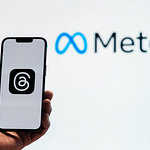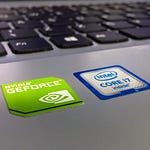In this episode, we discuss the positive consumer sentiment, stickiness in service inflation, and ChatGPT attracting criticism.
The episode is based on yesterday's newsletter which is available on Substack.
This week, a transcript of this podcast, with relevant images and quotes, is available for all subscribers after the show notes below. Our podcast is available on Apple Podcasts, Spotify, Google Podcasts, YouTube, and Amazon Music.
Show Notes
00:00:00 Introduction
00:00:13 Consumer is Still Partying
00:01:31 Service Inflation Still Sticky
00:02:45 No Hurricane Yet
00:03:22 UID 2.0
00:05:44 ChatGPT Attracting Criticism
00:08:15 Back to Office at Amazon
00:09:27 Conclusion
Introduction
[00:00:00] Scott: Welcome everyone to a new episode of The Transcript podcast. You've got me, Scott Krisiloff, I'm editor of The Transcript, along with Erick Mokaya, our lead author. We sent out a new issue of the newsletter yesterday, which is President's Day, a holiday, but we still had it out there.
Consumer is Still Partying
And what we found last week was that similar to what we've been seeing, the consumer is resilient and really just positive sentiment generally from CEOs, especially some of the banks who were speaking. Brian Moynihan said that, of middle market clients, they were saying that overall they thought things would be much worse now than they are, but when they look around, they're feeling fine. So that was the title of our newsletter this week, Feeling Fine. Erick, any thoughts?
"On the credit card side, we're up at almost 20% in the month year-on-year...So the consumer side, people are out there still spending, and you can see that in your day-to-day life. Try getting a restaurant reservation in most cities these days, right? It's really hard if you want to do something last minute. And so I think we're seeing people out there." - Wells Fargo CFO Michael Santomassimo
[00:00:44] Mokaya: I smiled when I saw the title Feeling Fine. I think it really represents what we've been capturing in earnings calls. We didn't do a podcast last week and the title was Let's Dance, so it's Let's Dance and Feeling Fine. So it's good times for the consumer generally. There's not a lot that has changed ever since banks reported last month. So I think it was banks having conferences last week. More CEOs, including a Goldman Sachs CEO, are saying okay, the consumer is still strong. So the argument is about whether we are having a soft landing or no landing at all. So I think that's the main argument. But generally, the consumer is feeling okay. But I think the key picking this week is that try to get a restaurant reservation or hotel room, both of those are unavailable right now. People are still maybe enjoying the experiences of post-pandemic pleasure having been holed in during the pandemic.
Service Inflation Still Sticky
And if you combine that with what the Fed chair said a couple of weeks ago about service inflation being sticky, I think it looks like this is not going down, or at least we may need to readjust or be a bit more comfortable with a bit higher inflation going forward. Now, what's your take on all that?
[00:01:47] Scott: Yeah, I think it's interesting. Last week we got CPI and PI data which was a little bit hotter than expected, especially on the core side. There still seems to be like 4% plus inflation underlying core inflation that's in the economy, and that's obviously running a full, that's double what the Fed would want at 2%. And so we got actually some pretty negative inflation data points last week, but still the tone of this newsletter this week was very positive. And even with respect to inflation, I think Goldman Sachs's CEO was talking about how investors feel like we've conquered inflation at this point and they're looking past inflation. And I don't know if this is a circumstance where people feel like we've gotten farther ahead of inflation than we really have, and the Fed is going to come in and continue to pump the brakes on the economy, or if we really are headed for this soft landing or no landing situation that people seem to be expecting now. That's the outstanding question.
No Hurricane Yet
[00:02:45] Mokaya: I think going back six or seven months ago when the JP Morgan CEO talked about there being a hurricane on the horizon, my conclusion now is that given how the sentiment has changed, especially the bank CEOs, it could be that they were expecting something much worse and now whatever is happening is actually a bit benign. If you look beyond just the macro section, the financials, and capital markets activities are starting to pick up, meaning that people are becoming a bit more confident. Or at least that the range of expectations is narrowing to such an extent that they're more confident about the future, so they're able to put out a bit more capital to work in the markets. Anything else you may have picked?
UID 2.0
[00:03:22] Scott: Yeah, I think going into the more company-specific areas in the consumer section, we had a few different quotes from Trade Desk, and there was one that really stuck out to me, which was them talking about the uptake of UID 2 being much faster than expected and having 75% market share, which UID 2 is something honestly I need to understand a little bit better the mechanics and who benefits. But my understanding is that for social media companies like Snap and Meta, the lack of being able to target consumers after Apple made its privacy moves has been a major headwind for their ability to grow advertising revenues. And the Trade Desk was saying that with UID 2, this problem of cookies and user identification has now been solved, which seems like it could be a big positive catalyst for those social media companies. Do you have any additional insights in the UID 2, or what's going on there?
[00:04:17] Mokaya: So I think last time I checked, which was a while back, I need to update my knowledge on it. Think of this as having two parties involved so one is a consumer and then there's a publisher who wants to serve them ads. They have this thing in common. They both want relevant ads, for the consumer because they bought them to get things that they really want to buy and then they are able to maybe get them at a discount or something. And to the publisher, they want to put out relevant ads so they can be able to increase the ROI. So the solution that you UID 2 provides is to be able to do both of these things without compromising on privacy. So UID 2 is more of an open-source solution to this problem. So what happens is the consumer shares an email or phone number that is hashed out and encrypted and then shared with both of them. And then the consumer can be able to change some of the details that they want to attach to them. And the publisher is able to get some of these details and be able to deliver relevant ads and increase this ROI at the end of the day. So the uptake has been a bit surprising even the CEO of Trade Desk said that around 15% of the third-party data ecosystem was already on UID 2. And then they expect that to increase to around 75% by the first half of this year, meaning that this solution seems to be very relevant to the ecosystem and as such the uptake is surprisingly good. And I think that then becomes a huge catalyst for growth for companies that are involved in this area, like the Trade Desk themselves. Maybe I can read a bit more and next time we can have a proper, deeper conversation.
Source: Rise Interactive
ChatGPT Attracting Criticism
So beyond that though, I wanted to also touch on a few takeaways maybe from the tech section. It's about chatGPT. It's been the front and center of activities in the past two weeks. And last week we didn't have the podcast, but I think Let’s Dance was all about Microsoft CEO Satya Nadella calling Google to come dance a little bit in the world of search engine. It feels like we're in the new face of search wars and all that and browser wars are once again reactivated. And there was a bit of a reference to Netscape. I don’t know, what's your takeaway from that in terms of the relationship between those two and Netscape and AI and chatGPT and all that?
"I think the marketing moment offered by ChatGPT is incredible. We’ve seen these moments before: a company called Netscape brought the web browser to everybody’s attention. I mean Netscape was not an eventual winner but the internet certainly was. I think what ChatGPT has done [is] helped make AI real to lots of people who kind of were aware of it but didn’t maybe quite see what the power of AI would be. So full credit to what they did there." - IBM CEO Arvind Krishna
[00:06:19] Scott: Yeah, I think it was interesting. You're really seeing, this was IBM CEO speaking and you're seeing competitors to open AI really coalesce around the idea that chatGPT is inaccurate or presents inaccuracies, and that's becoming a brand identity that competition is pushing onto chatGPT, I think. And so it's interesting that's a vector of attack that they're coming at. And you saw IBM's CEO pushing that as well. Also, he was saying that basically the Netscape OpenAI chatGPT comparison was obviously meant to show that hey, yeah, somebody launched this game-changing technology 30 years ago now, and it didn't end up winning the day, somebody else won the web browser wars. So it was to remind people that there's still a big industrial competition that's coming in this, and just because chat GPT launched to the war doesn't mean that they're going to end up winning. I think it's particularly interesting that IBM's CEO is talking about this because of IBM's complete irrelevance to this conversation so far. Obviously, they made a big first-mover push with Watson, but that has not materialized into much economic value. I would put more stock into this I think if it were Google CEO or somebody from the Amazon team talking about this, but IBM is irrelevant it seems.
"The use cases we work on are not consumer, so consumer is a lot easier to explain: they type in something and, some number of times out of 10, you get an interesting, intriguing, and in the right ballpark answer. What nobody can quite say is how likely is it to get a completely incorrect answer, as at least one of the two demonstrations has shown. If you’re using it for consumer search, fine. If I’m using it to answer a question on somebody’s financial transaction, that’s actually quite a problem. Or, if it’s being used to answer somebody’s question on what healthcare treatment they might seek. So, for enterprise use cases, I still think that there is a massive opportunity that is outside the pure consumer space." - IBM CEO Arvind Krishna
[00:07:38] Mokaya: One of the questions fronted to him was why IBM did not launch ChatGPT and the reasons he gave, I don't know what’s your take from them. One was that they focused on very black box kind of experiences they didn't want where the user interacts with the AI like now on ChatGPT and quickly gets the answers themselves. And then the second reason he gave was that they focused on very niche areas like health, where they didn't have the expertise and that's why they failed in that. He himself acknowledges that what ChatGPT has done is to actually bring to the forefront the conversations around AI and its usability among people. You can feel like across the landscape ChatGPT is causing such a massive reawakening among companies.
Back to Office at Amazon
Anything else that you took away? Perhaps one of the most surprising was Amazon calling people back to their offices and the impact that would have maybe on office leasing and commercial real estate. Any takeaway from that?
"Ultimately, they’ve led us to conclude that we should go back to being in the office together the majority of the time (at least three days per week)...Of course, as there were before the pandemic, there will still be certain roles (e.g. some of our salespeople, customer support, etc.) and exceptions to these expectations, but that will be a small minority. We plan to implement this change effective May 1." - Amazon CEO Andy Jassy
[00:08:27] Scott: Yeah, I definitely see more in-person work happening these days. It feels like the pandemic is very much in the rearview mirror now, and people are going back into offices. Really just feeling the need for social connection, I think in work. And I think even though we're still very productive in a remote work environment there's more gravity pulling people back into offices. So I don't know, I still don't know whether it balances out in a hybrid situation or not. But there is definitely more momentum for its office.
[00:08:58] Mokaya: Yeah. Six or so months ago, it's very few companies that dare say what Amazon is saying right now, but I think like with the post-pandemic life happening, layoffs happening, I think companies are taking advantage of this to really restructure a lot of the things that they wanted to do, really thinking keenly how to right-size their workforce and how to make workforces more efficient and one of the things is definitely bringing people back into the office. And a key reason they give is culture. It's really difficult to embed culture in new recruits if they're working from home.
Conclusion
So we've covered a lot in the newsletter, so I guess that would be a good point to end this conversation.
[00:09:31] Scott: I think that's a good place to stop.
[00:09:33] Mokaya: Maybe I would close with the quote from Charlie Munger who said “Go all in on good bets”. I think our good bet is The Transcript and we really love it. Thank you for joining us this week. Bye from us.
















